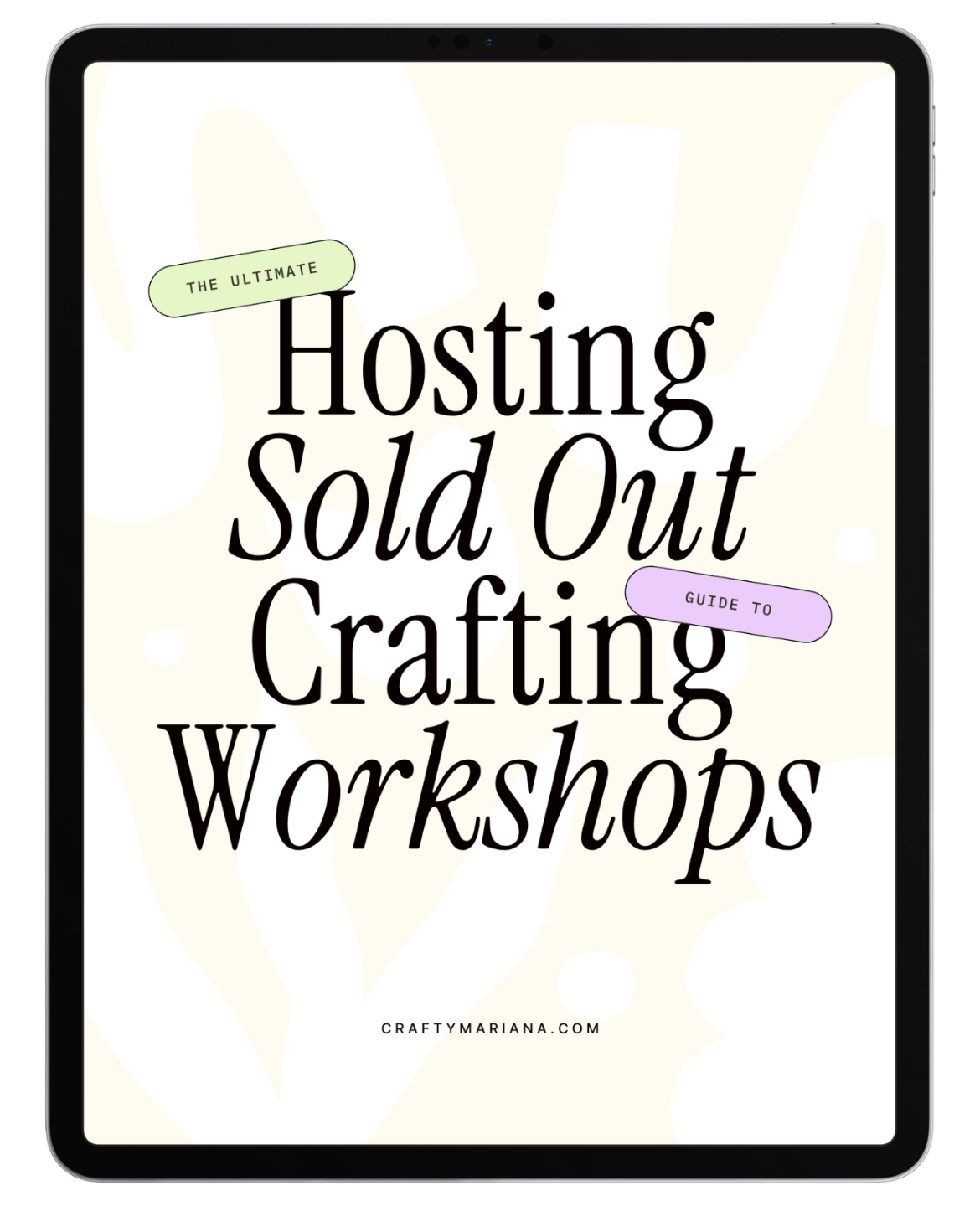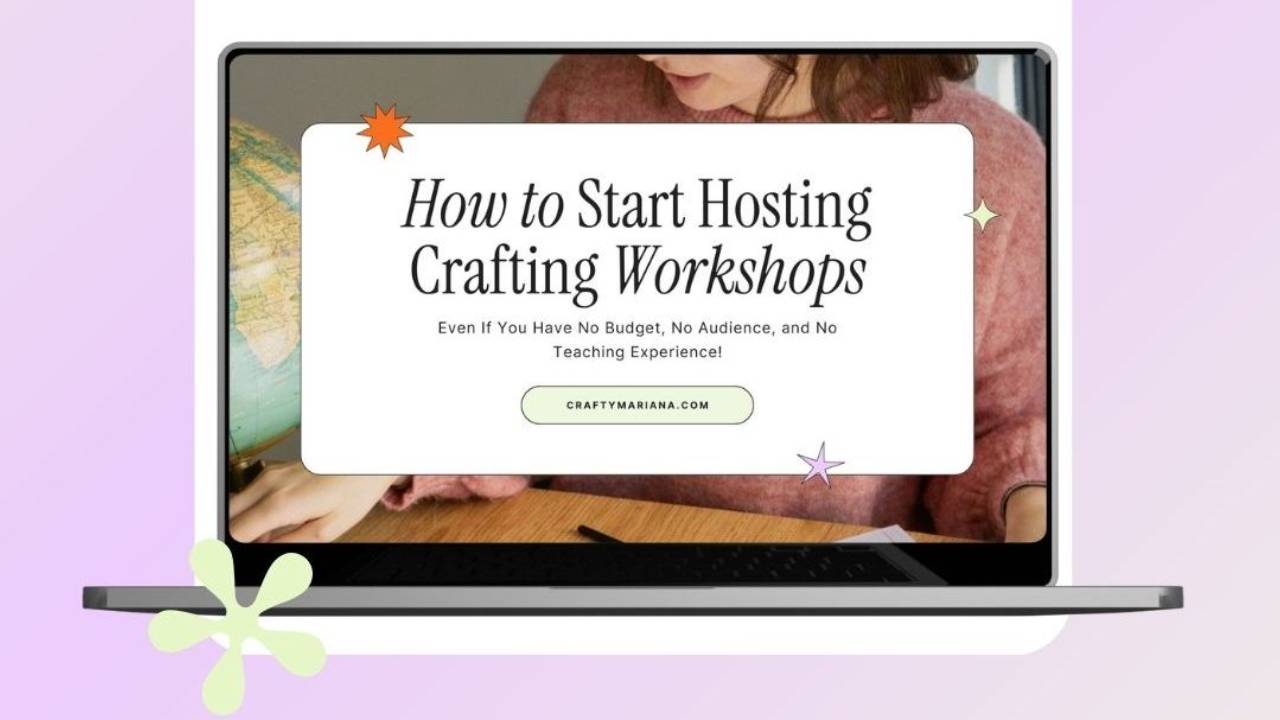What Do I Need to Run a Craft Workshop? Let’s Break It Down Together!

Hey there, crafty friend! 🎨
So, you’re thinking about hosting a craft workshop—how exciting! But I bet there’s a little voice in your head asking, “What do I actually need to pull this off?” Trust me, I’ve been there, and I know it can feel a bit overwhelming. But don’t worry, we’re going to walk through it together, step by step, like we’re having a friendly chat over coffee.
By the end of this, you’ll have a clear idea of what you need to get your workshop up and running—without any of the guesswork. Let’s dive in!
1. Your Workshop Idea: The Heart of the Experience 💡
First things first: What are you going to teach? This is the heart of your workshop. Whether it’s knitting, painting, or DIY home decor, your passion and expertise will drive the whole experience. So, take a moment to think about what lights you up and what you can’t wait to share with others.
Pro Tip: Choose a craft that you not only love but one that’s also accessible to your audience. It should be challenging enough to be exciting, but not so difficult that beginners will feel lost.
2. Materials & Supplies: Get Organized 🛠️
Once you’ve got your idea, it’s time to think about materials and supplies. Make a list of everything you’ll need for the workshop—this includes the basics like scissors and glue, but also any special tools or materials specific to your craft.
Do you need:
-
Brushes, paints, or canvases?
-
Knitting needles and yarn?
-
Specialized tools like a pottery wheel?
If you’re providing the materials, make sure you have enough for everyone, plus a little extra for mistakes or last-minute additions. If participants need to bring their own supplies, give them a clear list well in advance.
Pro Tip: Consider offering a materials kit that participants can purchase from you. This can be a great way to ensure everyone has the right tools and materials, and it adds a little extra income for you!
🎨 Want to make your workshop planning process even easier? At the Crafts Workshops Academy, we offer step-by-step guides and resources to help you get organized, so you can focus on what you love—teaching your craft!
3. Space: Finding the Right Venue 🏠
Next up is the space. Where are you going to host this workshop? You’ll need a place that’s comfortable, spacious enough for everyone to work, and well-lit (especially if you’re working with colors or fine details).
You can use:
-
Your own studio (if you have one)
-
A rented space like a community center or a café
-
Even your living room, if it’s a small, intimate group
Pro Tip: Make sure there’s enough room for everyone to spread out their supplies and work comfortably. And don’t forget about things like tables, chairs, and easy access to water (for those messy crafts!).
4. The Workshop Plan: Keep It Flowing 📅
Now, let’s talk about the plan. A great workshop has a clear structure. Think about how you’ll guide your participants from start to finish.
Consider:
-
Intro & Welcome: Briefly introduce yourself and the craft. Let everyone know what to expect.
-
Step-by-Step Instructions: Break down the project into manageable steps. Demonstrate each one before letting participants try it themselves.
-
Q&A Time: Make space for questions and troubleshooting. This is where you really get to connect with your students.
-
Wrap-Up: Give everyone a chance to share their work and celebrate their progress. End on a positive note!
Pro Tip: Keep it flexible. While it’s important to have a plan, don’t be afraid to go with the flow if your participants need more time on a particular step or want to explore a creative tangent.
5. Promotion: Get the Word Out 📣
You’ve got the idea, the supplies, the space, and the plan. Now, it’s time to get people to sign up! Promoting your workshop is key to filling those seats (or Zoom squares if you’re going virtual).
You can:
-
Post on social media: Share what you’re teaching, who it’s for, and why it’s going to be amazing.
-
Send out emails: Let your existing audience know about the workshop. Offer an early-bird discount or bonus to encourage sign-ups.
-
Collaborate with others: Partner with local businesses or influencers who can help spread the word.
Pro Tip: Create a sense of urgency with limited spots or early-bird pricing. And don’t forget to highlight the benefits—what will participants walk away with?
📣 Want to master the art of workshop promotion? At the Crafts Workshops Academy, we teach you proven strategies to attract and retain students, so you can focus on doing what you love.
6. Confidence: You’ve Got This! 💪
Last but not least, you need a healthy dose of confidence. You don’t have to be the world’s greatest expert to run a workshop. What matters most is that you’re passionate, knowledgeable, and excited to share what you know.
Remember, people are coming to your workshop because they want to learn from YOU. They’re looking for your unique perspective, your tips and tricks, and your encouragement. So take a deep breath, trust in your skills, and get ready to create an amazing experience for your students.
Pro Tip: If you’re nervous, that’s okay! Practice your workshop plan a few times on your own or with a friend to build confidence. And remember, it’s all about having fun and connecting with others through your shared love of crafting.
Wrapping It Up: Let’s Get Crafty! 🎉
There you have it—a step-by-step breakdown of what you need to run a craft workshop. Whether you’re hosting your first one or your fiftieth, these tips will help you create a smooth, enjoyable experience for both you and your participants.
And hey, if you’re still feeling a bit unsure, don’t hesitate to reach out. I’m here to help you turn your creative passion into an unforgettable workshop experience!
🎉 Ready to take your workshop game to the next level? The Crafts Workshops Academy is your go-to resource for everything you need to succeed. Join us today and start crafting your dream workshops!
What are you waiting for? Let’s get crafty! 🧶✂️
Stay connected with news and updates!
Join our mailing list to receive the latest news and updates from our team.
Don't worry, your information will not be shared.
We hate SPAM. We will never sell your information, for any reason.








